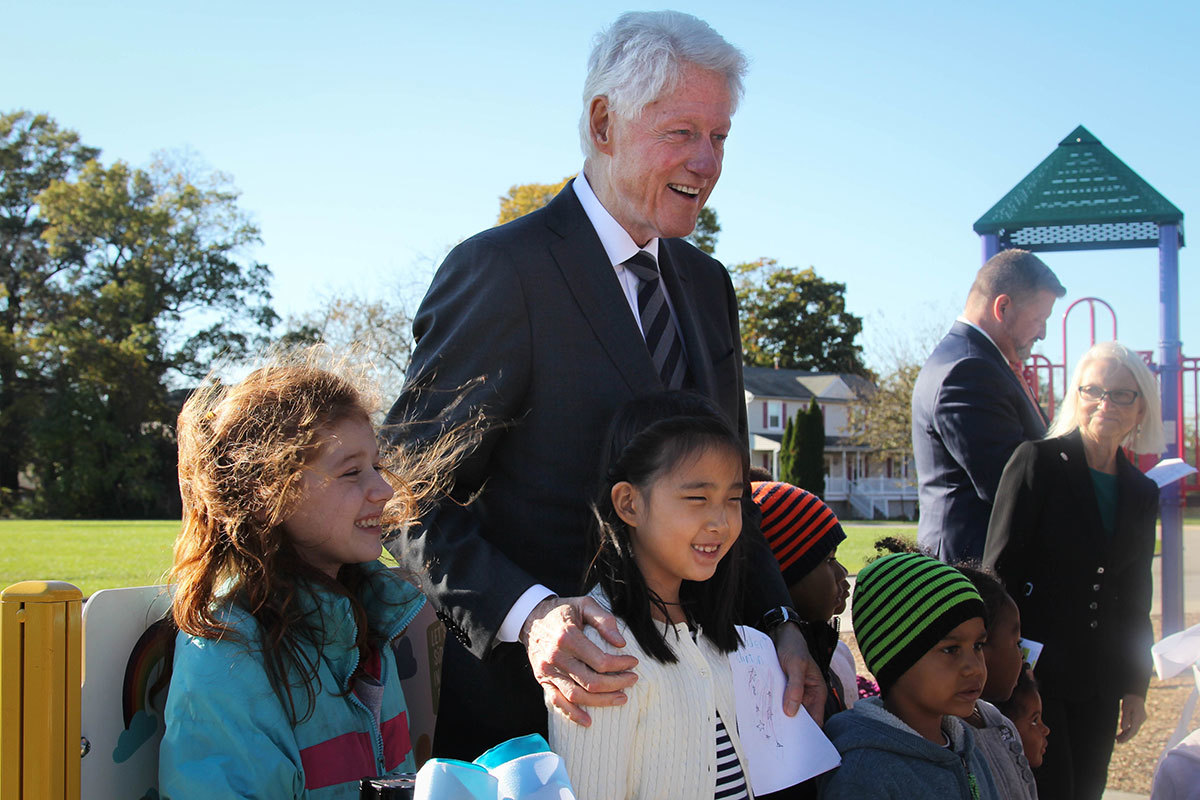
On Monday, former President Bill Clinton was in town for two distinctly different events, one addressing the Johns Hopkins University’s Bloomberg School of Public Health about the opioid crisis and the other at Sollers Point Library playground reinforcing the importance of child literacy.
In the morning, Clinton provided a list of recommendations compiled by the Clinton Foundation and the Bloomberg school including learning to use the overdose reversal drug naloxone, blocking the stigma attached to addiction, and fighting for the expansion of treatment.
“We are finally acting like a grown-up country and treating it like a public healthcare problem instead of primarily a criminal justice problem,” he said. “The bad news is, there’s a woefully inadequate public health response. What we are here to do today is to figure out what to do next.”
After introducing the 45-page report, The Opioid Epidemic: From Evidence to Impact, detailing the specific actions that should be taken by public health officials, the former president moderated a panel of experts who reiterated the need for addiction resources to combat overdoses nationwide.
The report is a result of the collaboration between the Clinton Foundation and the Bloomberg School of Public Health in 2014 aimed to address the ever-growing opioid epidemic. It calls for national guidelines on reducing the number of prescriptions written for opioid painkillers, expanding take-back programs for unused opioids, increasing funding for treatment in high-use areas, and increasing public education.
Alongside Clinton were local panelists including Rep. Elijah Cummings, Baltimore Health Commissioner Dr. Leana Wen, Plank Industries CEO Tom Geddes, and Randi Weingarten of the American Federation of Teachers.
Wen has already made Baltimore one of the leading trailblazers in the fight of opioid overdose by making naloxone the city’s central focus. As of June 1, Baltimore became the first city to offer a blanket prescription for naloxone at all pharmacies but still emphasized that there’s still more to be done. Earlier this year, Governor Larry Hogan declared a state of emergency for opioid crisis in the state of Maryland.
“I have over prescribed opioids to patients and I didn’t know it,” Wen said. “We have to change the culture of prescribing a pill for every pain. We have to get treatment to people whenever they are ready while reducing the supply of the drugs.”
After the Opioid Summit, Clinton attended a ribbon-cutting ceremony in Dundalk at the Sollers Point Library playground. He was joined by representatives from Too Small to Fail—a Clinton Foundation campaign for early childhood development—and the Baltimore County Library to officially dedicate literacy-themed panels as part of the “Talking is Teaching” initiative.
Baltimore County Library officials hope that the visit from former President Clinton will encourage more engagement from young readers in the community. This is now the 83rd playground in America to incorporate the literacy-themed messaging.
“The purpose of Too Small to Fail is to empower parents and caregivers to talk, read, and sing with children from the day they’re born,” Clinton said. “To help them build the framework on which they can become everything they ought to be.”
